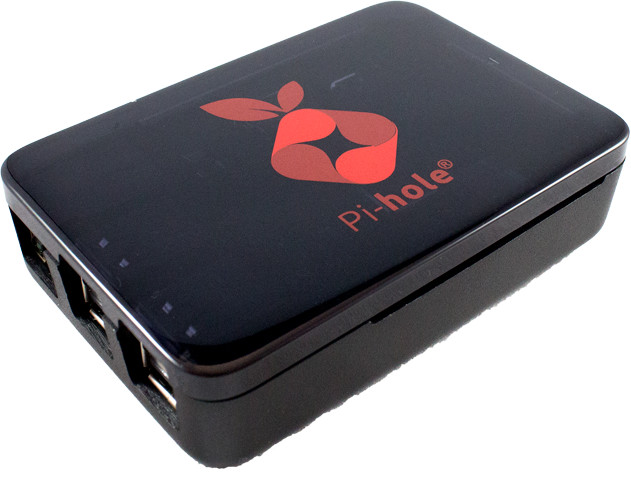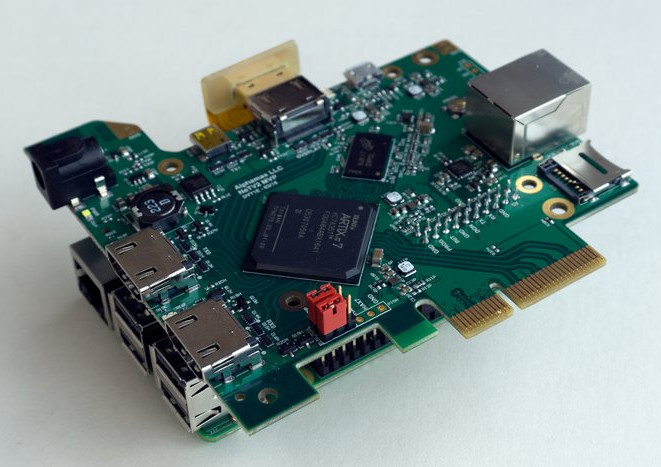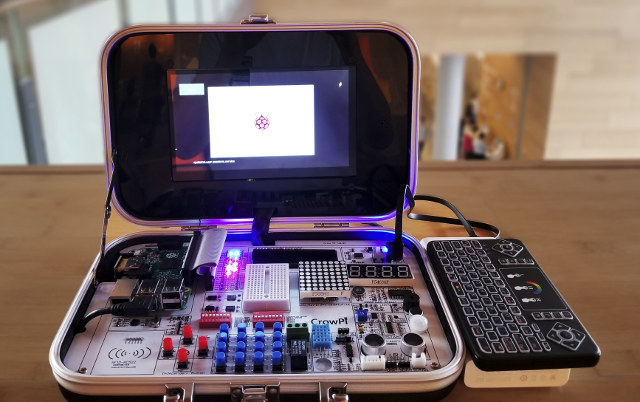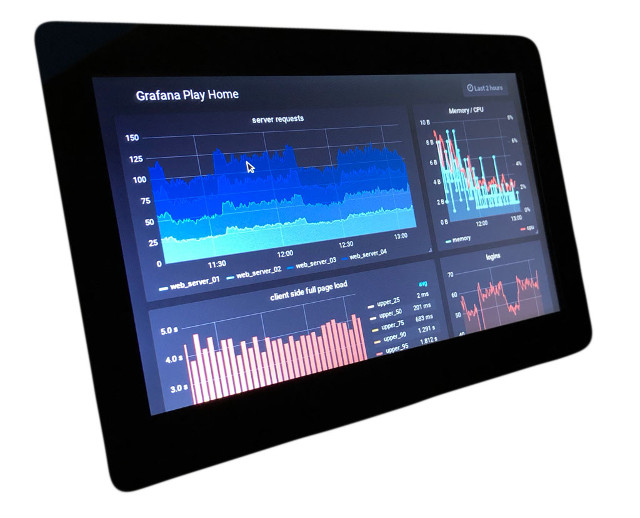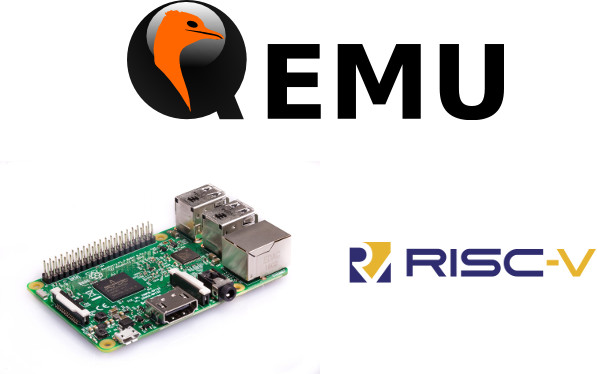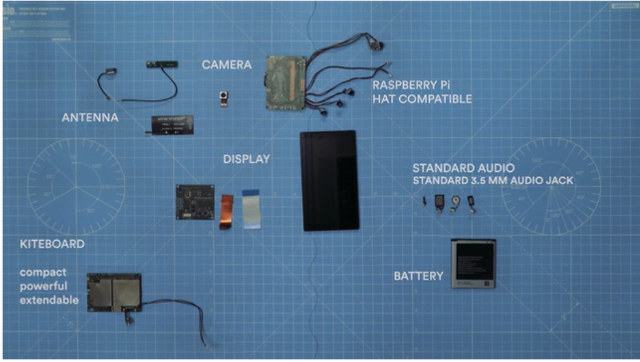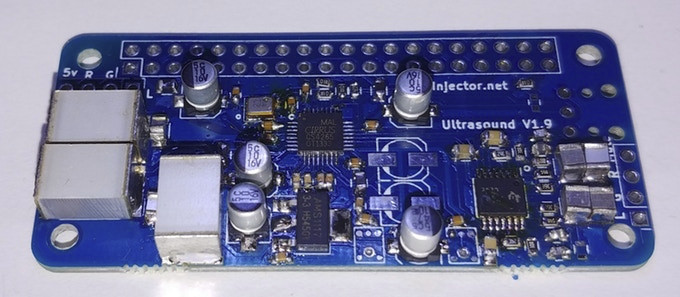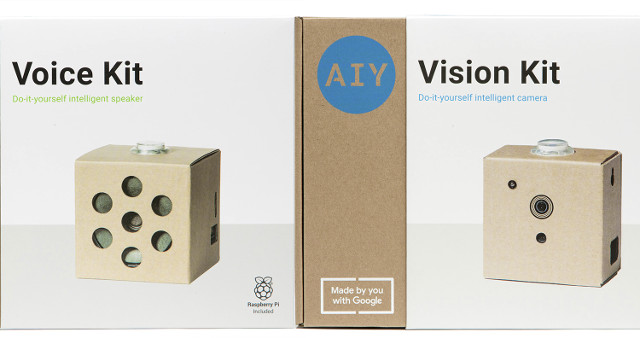If you don’t like getting tracked or see ads, it’s normally easy enough to install an ad blocker plugin in your web browser. But if you want to save some resources on your computer(s) and/or prevent online ads on other devices – including TVs – on your local network, it’s possible to do so via an external device / router using software such as Pi-Hole that can be installed on a Raspberry Pi board (or other Linux machines) in order to filter ads before they even get to your computer. This would normally require you to get your own hardware, enclosure, flash the firmware on a board, and install Pi-Hole yourself. That should easy enough for most regular readers of this blog, but there’s no an option for less tech-savvy user, as Pi Supply and Pi-Hole have partnered to launch the Pi Hole Kit with everything in one packages and […]
NeTV2 Open Video Development Board Works with Encrypted and Unencrypted Video Streams (Crowdfunding)
Chumby NeTV was an open source hardware Linux IPTV media player based on a Xilinx Spartan FPGA and a Marvell Armada 166 processor, and unveiled in 2011. Many years have passed since then, and now Bunnie Huang has come up with a new version. The NeTV2 development board is also optimized for open digital video application, but based on a more powerful Xilinx Artik-7 FPGA, and a Raspberry Pi 3 B+ can be added for things like seamless JTAG configuration and overlay video generation. Key features and specifications: FPGA – Xilinx Artik-7 XC7A35T-2FGG484 (available with XC7A50T option during campaign only) System Memory – 512 MB RAM, 32-bit wide DDR3-800 Storage – micro SD card, 8 MB SPI flash Video Ports 2x HDMI type A inputs 1 x HDMI type A output 1 x HDMI type D output. One input/output pair configured for in-line ‘NeTV mode’ video filtering. Max Video Bandwidth […]
CrowPi is a Portable Learning Kit for Raspberry Pi 3 B+ / Zero Boards (Crowdfunding)
We have an embarrassment of choices for Raspberry Pi accessories from touchscreen displays, HAT add-ons boards, sensors, breadboard, and so on, as well as good software and support from Raspberry Pi forums. This is all good, but it can be messy with all those jumper cables, and not really portable. Elecrow has a neat solution with the CrowPi learning kit for Raspberry Pi 3 and Raspberry Pi Zero that come with a 7″ display, several sensors, buttons, a breadboard, and more all packed in a small suitcase. Main parts of the kit: 7″ touchscreen display Breadboard with GPIOs status LEDs Input modules – Light sensor, IR receiver, PIR motion sensor, sound sensor, temperature & humidity sensor, touch sensor, ultrasonic sensor, NFC reader, and tilt sensor Output modules – 8×8 LED matrix, 4-digit LED display, I2C LCD1602 display, buzzer, vibration motor, relay module, 9G servo, and stepper motor. Control modules – […]
Acme Systems CM3-PANEL Panel PC based on Raspberry Pi Compute Module 3 Sells for 99 Euros and Up
After their first Raspberry Pi Compute Module 3 based board called CM3-Home designed for home automation, Acme Systems has designed a new RPi CM3 carrier board called CM3-PANEL for panel PCs / tablets. They sell four variants of their panel PC built around the board with or without WiFi module and/or 868MHz RF module, and offer customization services for people willing to purchase at least 100 pieces. CM3-PANEL based Panel PC specifications: Socket for Raspberry Pi Compute Module 3 Display – 7″ (800×480 resolution) with 10-point capacitive touch Camera – MIPI connector for Raspberry Pi Camera Up to 24 GPIO lines available for extensions or LCD backlight control Camera led and camera shutdown control SPI bus (5 GPIOs) Hardware PWM lines (2 GPIOs) Serial line PCM line (4 GPIOs) I2C bus Model specific features: CM3-PANEL-W – 802.11 b/g/n WiFi @ 2.4GHz (RaLink RT5370N USB module) CM3-PANEL-U – 1x USB host […]
QEMU 2.12 Released with Raspberry Pi 3, RISC-V Support
QEMU is open source machine emulator and virtualizer, which I used in the past at a time when Arm boards were more expensive or hard to get than today, and more recently I tested RISC-V Linux using QEMU (fork). QEMU 2.12 has now been released with some interesting new features including RISC-V support, and initial support for Raspberry Pi 3 machine model. The Changelog is rather long, but some other notable changes include: Cortex-M33 Armv8-M emulation, used by the new mps2-an505 board. Support for various AArch64 v8.1/v8.2/v8.3 extensions. Initial support for Raspberry Pi 3 machine model i.MX7 SoC and i.MX7 Sabre board emulation. Spectre/Meltdown mitigation support for x86/pseries/s390 guest Intel IOMMU support for 48-bit addresses Many SD card emulation cleanups and bugfixes. Etc.. You can get the source code and build instructions in the download page. If you are interested in running Debian on RPI 3 model, or/and want to […]
Kite is an Open Source Hardware Android Smartphone Powered by Snapdragon 450 Processor (Crowdfunding)
Kite is an open source hardware Android phone kit specifically targeting makers which you can assemble yourself into a Kitephone. The phone is based on a Qualcomm Snapdragon 450 mainboard (Kiteboard v2), and comes with a 720p touchscreen display module, a 12MP camera, antennas, buttons, a 3,000 mAh battery, and a Raspberry Pi HAT compatibility board to optionally interface to external hardware. Kiteboard v2 specifications: SoC – Qualcomm Snapdragon 450 octa-core Arm Cortex A53 @ 1.8 GHz with Adreno 506 GPU System Memory – 2 GB RAM Storage – 16 GB storage + microSD card slot Connectivity Cellular LTE Cat. 6/3G/2G, 2x nano SIM slots (dual-SIM dual standby) Two variant North America with LTE FDD Bands: 2,4, 5, 7, 12, 13, 14, 25, 26 LTE TDD Bands: 41 WCDMA 850, 1700, 1900, 2100 GSM 850, 1900 Rest of the World (Europe, Russia, etc…) LTE FDD Bands: 1, 3, 5, 7, […]
Flatmax Studio Audio Injector Ultra Sound Card is Designed for Raspberry Pi Boards (Crowdfunding)
Flatmax Studio has launched several audio cards for Raspberry Pi boards on Kickstarter in recent years, and their latest board is called “Audio Injector Ultra Sound Card”. The board is said to give high fidelity input and output audio @ 192 kHz, is equipped with digital output (S/PDIF) and offers dual microphone capability. An extra balanced HAT – will send and receive balanced stereo input and output – is also available. Specifications: Direct Inputs – Unpopulated Analogue Connectors (stereo RCAs provided) Direct Outputs – Unpopulated Analogue Connectors (stereo RCAs provided), Digital Optical SPDIF (Optical transducer provided) Potentiometer Inputs – Unpopulated Connectors and potentiometer (stereo pot. not provided). Potentiometer Outputs – Unpopulated Connectors and potentiometer (stereo pot. not provided). Microphone – 2x high quality ultrasound (model – SPU0410LR5H) surface mount microphones populated Audio Codec – Cirrus Logic CS4265 stereo codec Sample rate – 192 kHz, 24 bit Jitter control – Low […]
Google AIY Projects Kits are Easier to Use in 2018 with Raspberry Pi Zero WH and All Accessories Included
Google launched two AIY Projects kits last year with a Voice Kit that took a Raspberry Pi 3 to create a smart speaker, and a Vision kit for hardware accelerated computer vision using a Raspberry Pi Zero W board. Google reports the kits are popular, especially for STEM education, but educators/parents had to buy the Raspberry Pi boards and micro SD cards themselves, as well as flash the firmware to the cards. So the company decided to redesign both kits to work with the Raspberry Pi Zero WH (RPi Zero W with headers), and include it inside the box with cable and pre-provisioned SD card, so kids can get started faster with experimentation with having to setup the kits. So that means we now have AIY Projects Voice Kit v2 with RPi Zero WH and micro SD card with firmware, as well as AIY Projects Vision Kit v1.1 with RPi Zero […]


